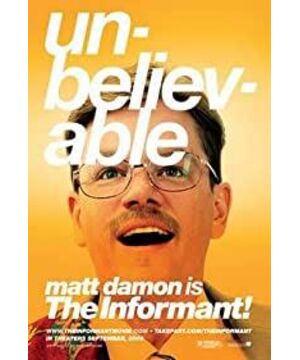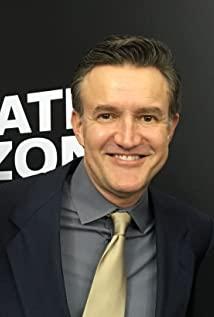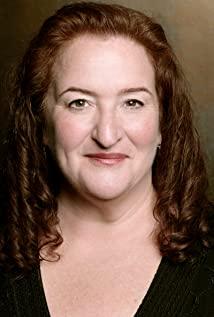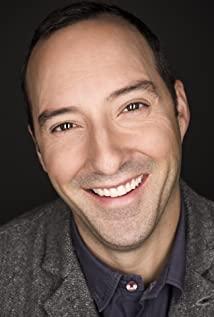After watching a movie, it is embarrassing. The actor Mark, a biologist who studies amino acids, is the vice president of ADM in the United States. You think his parents died since he was young and he was helpless. He was adopted by a wealthy businessman, but he kept striving to improve himself. He obtained three degrees. He grew up with a happy family and became the father of two children. In fact, his parents are both in a certain state in the United States. His education and entry experience are not as sad and inspirational as his brains. You think he is upright and kind, and he can't understand the capitalists' joint pricing and exploitation of the masses and turned to the FBI. The undercover witnesses, who abandoned their high positions, would rather do infernal affairs every day. They helped the FBI to take a number of tapes for more than two years, collected a lot of evidence, and finally brought the criminals to justice. In fact, he was because the company found someone from the FBI to investigate the virus in the company's experimental materials. He was afraid that he would put the virus in the company's experimental materials and cause the company to lose millions of dollars every day, and he was leaked. , And then inform the FBI, sacrifice the company, and divert the FBI's attention. The film’s off-the-shelf inspirational and warm-hearted American comedy route is reversed all the way, with endless surprises. The actor's almost neurotic narration is also mixed with some of his deceptive behaviors, and the comedy effect is even more powerful. Mark did not live in the world of Trumen, but he actually used lies to create a world of Trumen for himself. In this world, he believes no one, everyone can be deceived. The bad things he had done were exposed, and he found a lawyer to seek help, but he never explained himself to the lawyer. He was a liar, and his typical words ran faster than his brain. Before his brain thought, he had already told a perfect lie. In the end, he even pretended to be robbed and kidnapped to deceive his wife. Thousands of years ago, the ancient sage Mencius made a choice that has been passed down through the ages and praised by others on the proposition of surrendering one's life for righteousness. But in him, I saw the extreme of another choice. At the end of the story, during the FBI agent’s questioning, he accidentally exposed the hidden reality under his lie. The agent’s astonished expression and his unrepentant expression set off each other, and his hypocrisy and love for profit were shaped by his hypocritical personality. Fuller. We can’t find out whether he is really happy living in a false world, and we can’t understand it. After all, “the happiness of being rich is beyond my imagination.” Perhaps in Mark’s mind, lying is not something to be ashamed of. Things, "everything is inferior, only the benefits are high." Based on this profit-seeking mentality, our anti-monopoly leniency system has room for implementation. The design and successful implementation of a system must capture people’s vitals, based on the The most true psychological inquiry. Marx said: "When the profit reaches 10%, some people are ready to move; when the profit reaches 50%, some people dare to take the risk; when the profit reaches 100%, they dare to trample on all the laws of the world; and when the profit reaches 300%, Even going to the gallows is not afraid." The alliance between businessmen is to earn benefits, but when the application of the leniency system can win more benefits for the side, the business operators will certainly be like Mark. Don't hesitate to be a whistleblower and abandon the alliance. The leniency system means that the operator takes the initiative to report to the anti-monopoly law enforcement agency of a country the relevant circumstances of the monopoly agreement and provide important evidence, and the law enforcement agency can reduce or exempt the business operator as appropriate. Its theoretical basis is similar to the "prisoner's dilemma" in economics. Every operator is worried about being betrayed, and the leniency system has a great reduction and exemption, which is very tempting for operators. The State Council’s anti-monopoly law enforcement agency is the State Administration for Market Regulation, and the State Council’s anti-monopoly law enforcement agency has an anti-monopoly committee. According to Article 46 of the Anti-Monopoly Law, both horizontal and vertical monopoly agreements can be applied to leniency systems. In practice, there are no shortage of examples of the leniency system applied to vertical monopoly agreements. It’s just that horizontal monopoly agreements usually have serious effects of eliminating and restricting competition. With the continuous development of the Anti-Monopoly Law, operators will fight wits and courage with them, and the concealment of the monopoly agreements reached and implemented between them will become more concealed. The stronger the situation, the more difficult it will be for law enforcement agencies to find monopoly agreements. Therefore, the leniency system plays a more obvious role in investigating and dealing with horizontal monopoly agreements, and my country also pays special attention to this aspect. In January 2019, the Anti-Monopoly Commission of the State Council issued the "Guidelines for the Application of the Leniency System in Horizontal Monopoly Agreement Cases of the Anti-Monopoly Committee of the State Council" to specify the application of the leniency system for horizontal monopoly agreements. If an operator wants to strive for leniency, first of all, under specific time conditions, that is, before the law enforcement agency initiates the case or before the investigation procedure is initiated in accordance with the Anti-Monopoly Law, the investigation can also be initiated after the law enforcement agency initiates the case or in accordance with the Anti-Monopoly Law After the procedure, before the administrative penalty is notified in advance. Secondly, business operators need to communicate with law enforcement agencies in advance, report the situation regarding the monopoly agreement as early as possible, and communicate with law enforcement agencies anonymously or in real names, either verbally or in writing. Then, according to whether the operator applies for exemption or mitigation, different documents are submitted, and those who apply for exemption must be registered. Finally, the operator meets other conditions and the law enforcement agency reviews the comprehensive circumstances and decides whether to grant the operator leniency and the extent of penalty relief. Under normal circumstances, law enforcement agencies can grant up to three business operators lenient in the same monopoly agreement case. If the case is major and complicated and involves a large number of operators, and the operators applying for leniency do provide different important evidence, law enforcement agencies may consider granting leniency to more operators. The leniency system of the United States and China is slightly different. First, the law enforcement agencies are different. The anti-monopoly law enforcement tasks in the United States are undertaken by the Antitrust Agency (AD) and the Federal Trade Commission (FTC) respectively. In my country, the State Administration for Market Supervision and Administration. Second, the American leniency system is divided into personal leniency and corporate leniency, but my country has no such distinction. The United States’ responsibilities for anti-monopoly violations are civil and criminal liabilities, while my country’s Anti-Monopoly Law does not differ from the Criminal Law. In conjunction with the provisions of criminal responsibility, certain agreements may pursue criminal responsibility, such as bid collusion. Third, the corporate leniency system in the United States is mainly composed of A-type leniency programs and B-type leniency programs. The leniency plan consists of two parts. The Type A leniency program applies to the situation before the antitrust law enforcement agency investigates a specific cartel behavior. It stipulates that leniency applicants can receive leniency treatment as long as they meet the six conditions when applying for leniency. The Type B leniency plan is applicable to situations where the antitrust law enforcement agency has known about a certain cartel but the evidence is insufficient, and is more stringent than the Type A leniency plan. Under the A-type leniency plan, leniency treatment is automatic, that is, as long as the leniency applicant meets the leniency conditions after review, there is no need to go through the decision of the antitrust law enforcement agency, and the leniency treatment is automatically granted to the leniency applicant, the company and its senior managers and ordinary employees Can automatically obtain leniency, which greatly reduces the discretionary power of antitrust law enforcement agencies. However, my country's leniency system still needs to be reviewed by law enforcement agencies, and law enforcement agencies have greater discretion. Fourth, cartel members in the United States who have not been granted leniency face the risk of litigation from victims of cartel behavior that file three times the civil compensation. Such a system design encourages operators to fight for leniency opportunities, but my country does not have such a case. According to the regulations, leniency is a reduction or exemption of administrative liability and does not involve civil liability. Finally, in the US leniency system, there is only complete leniency and no partial leniency, which means that only the first leniency applicant can receive leniency treatment. However, my country is able to lenient three operators at most at a time, and it can also provide a few more places as appropriate according to the specific circumstances. However, whether in accordance with the provisions of the United States or China's leniency system, Mark cannot obtain leniency. As the saying goes, "You must burn yourself when you play with fire." Mark Lao struggled to build a false world where Trumen desperately tried to escape, brick by brick. In the end, he suffered the consequences and was bitten by lies. This has also sounded the alarm for our market operators. In commercial profit-seeking activities, choosing to abide by the law and adhere to ethics is the guarantee of continuous wealth. Otherwise, the consequence of "sorrowing for future generations without learning" can only be "also causing future generations to mourn for future generations again". References: [1] Li Du. Research on Cartel Leniency System in the United States and Europe [D]. Southwest University of Political Science and Law, 2016.
View more about The Informant! reviews











